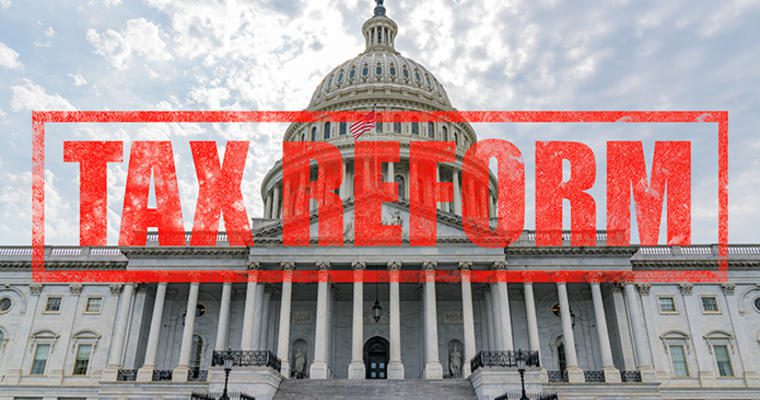On December 22, 2017, President Donald Trump signed into law the Tax Cuts and Jobs Act, touted as the most significant overhaul of the U.S. tax code in the last 30 years. Gordon Food Service Commercial Segment Manager Doug Owens and Director of Tax and Treasury Michelle Higginson explore the most significant implications of the legislation for foodservice operators.
Owens: Michelle, when did the tax changes go into effect?
Higginson: Generally, most provisions went into effect January 1, 2018. On the individual side, employers had until February 15 to update to the new income-tax withholding tables that determine the net pay their employees take home each pay period.
Owens: What changes have the most potential impact for operators?
Higginson: There are two key provisions we want to highlight for operators, having to do with “bonus depreciation” and rate reductions—in particular, the impact for pass-through entities.
Owens: Let’s take them in turn. What does bonus depreciation refer to?
Higginson: Under the new law, businesses can take advantage of full expensing—that is, they can depreciate (deduct) 100 percent of their investment in qualifying assets in the year they are purchased.
Another change: 100 percent depreciation now applies to the purchase of used qualifying assets as well as new.
Let’s say you go out and buy $100,000 of kitchen equipment in 2018. You can deduct that full amount on your 2018 taxes. Not having to wait on the tax benefit over time results in a real-time value of money benefit for you.
Another significant nuance is that this provision is actually retroactive to September 27, 2017. So any qualifying property you acquired and placed in service after that date can be fully expensed. The law provides for 100 percent depreciation until 2023, when it will be reduced by 20 percentage points each year, until it is eliminated in 2027.
Owens: That seems like an investment opportunity for owners looking to improve their operations. What about rate reductions and the impact on pass-through entities—how can that benefit operators?
Higginson: The Tax Cuts and Jobs Act lowered the corporate income tax from 35 percent to 21 percent. However, most small businesses tend not to be structured as corporations. They are organized as pass-through, or flow-through, entities: instead of the business paying tax on its own income, the profit (or loss) is passed through to the owner, who reports it on his/her personal tax return.
While there were some reductions for personal income, it is still generally taxed at a higher rate than the new 21 percent corporate rate. So several members of Congress made a big push to extend tax benefits to the individual owners and operators of these pass-through businesses.
In the final bill, the majority of these companies get to deduct 20 percent of their pass-through income. That doesn’t get them all the way to the new corporate tax rate, but it gets them closer. It can be a significant savings for S corporations, LLCs, sole proprietorships and other pass-through businesses.
Owens: Does that make one business structure better than another for foodservice operators?
Higginson: Not necessarily. It’s just that corporate and pass-through structures are now much closer in parity, with the corporate rate now being lower versus the flip side. So it changes the considerations for organizing as one legal entity versus the other. Of course, there are many other factors to consider in structuring your business.
Owens: What should operators do to see if they can take advantage of these changes?
Higginson: As with any tax matter, operators should consult with their tax adviser or accountant to determine the impact of the new reforms on their business. Knowing all your facts and circumstances may enable your advisor to quickly determine whether it would benefit you to purchase new assets or convert your business structure. So it’s well worth the nominal investment.
This material has been prepared for informational purposes only and is not intended to provide, and should not be relied on, for accounting, tax or legal advice. You should consult your own accounting, tax and legal advisers.




























